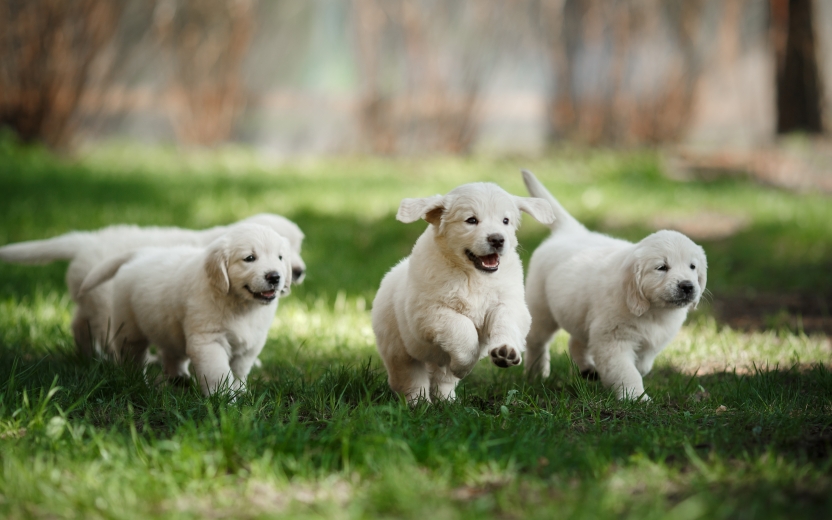Selecting a purebred puppy
Why are purebred dogs so coveted if they have a lot of health problems?
- A purebred dog is one whose parents are registered with the American Kennel Club (AKC) or a similar registry as purebreds of the same breed.
- The main benefit to owning a purebred dog is consistency - dogs of a certain breed are of similar size, coat type, temperament, and exercise requirements.
- Although it is true there are breed-associated ailments, some of the same common conditions can occur in mixed-breed dogs because common conditions are caused by many genes and environmental factors.
How do I identify a good dog breeder?
- Responsible breeders work hard to ensure they produce healthy puppies.
- They will test for all conditions recommended by their parent club (or national breed club) and may run additional tests as well.
- For example, I have a female Welsh Springer Spaniel.
- She has been tested for hip dysplasia (through the Orthopedic Foundation for Animals (OFA) and PennHIP™, elbow dysplasia, autoimmune thyroiditis, and heritable eye conditions. These are the four tests required by our breed club. There are currently no genetic tests for most complex conditions like hip and elbow dysplasia so the only available screening is physical testing.
- She has also had her heart screened by echocardiogram (an ultrasound of the heart) and has had her DNA tested to ensure she will not pass on known single gene (Mendelian) heritable diseases to her puppies.
- Many breeders will mandate you test your puppy, even if he or she is just a pet, to make sure they have information on all the dogs they produce.
- These can include DNA tests as well as other tests, such as hip and elbow x-rays.
- For example, I have a female Welsh Springer Spaniel.
- Responsible breeders will also provide a good start in life to help prevent environmental health issues.
- They will keep their adult dogs up-to-date on vaccines and some breeders will send puppies home having had their first set of shots.
- They will keep their environment clean.
- They will also ensure the puppies have good traction and a clean environment in the whelping box.
- In some cases, despite everyone’s best efforts, a health issue can arise. If this occurs, the breeder should offer you lifelong support. This is especially true for complex or multigenic conditions – such as orthopedic traits and cancer.
What does it mean to be a "good breeder?"
- Full health testing done on all breeding dogs.
- Each generation should be improving in health.
- Homes should ideally be available prior to breeding.
- Spay or neuter of pet-quality offspring may be mandated.
- All breeding dogs should be tested for brucellosis, which is a bacteria that is commonly passed through breeding. This is important because it can infect humans as well.
- They should be responsible throughout the lifetime of the dog. Often this is written into contracts as “right of first refusal” in the event you are no longer able to keep your dog.
- Lastly, they should provide early socialization and exposure for the puppies. There are several programs that accomplish these goals, or a breeder may create their own plan. Pups need to be exposed to new people, sights, sounds, and smells early on in life. This equips them to better respond to new experiences later in life. Breeders may also start on housetraining, crate training and basic manners.
What kind of training should "good breeders" have?
- Responsible breeders will take it upon themselves to research their breed, its associated health concerns, and dog health and care in general to ensure they are producing healthy, well-adjusted puppies.
Which is a better place to get a dog: rescue vs. breeder?
- I think both are great ways to add a new member to your family!
- There is nothing wrong with supporting a responsible breeder, and there is nothing wrong with supporting a responsible rescue. Both are truly on the same team and have the same goal - no more homeless pets! Rescues accomplish this goal by adopting pets into appropriate new homes, while breeders accomplish this goal by ensuring their puppy families are good fits for their dogs and taking their dogs back if an owner’s circumstances change.
- Furthermore, many national breed clubs run breed-specific rescue programs to keep their breed from occupying valuable shelter space.
Where should I look for a breeder?
- The best place to start in your breeder hunt is with the national breed club for that particular breed. These clubs often have breeder listings, and breeders must abide by a code of ethics to be listed.
- Although American Kennel Club registration is a great thing to have, the AKC is just a registry and does not necessarily ensure health quality.
What questions should I ask when selecting a breeder?
- How do you decide which dogs to breed?
- What health testing do you perform?
- What health conditions is your breed prone to?
- Do you DNA test your breeding animals and/or puppies?
- Have you noticed any (non-testable) health conditions in your line? (for example, epilepsy).
- Do you offer a health guarantee?
- If my circumstances change, are you willing to take the dog back?
- How are the puppies raised? Are they raised indoors? Do you use a puppy-raising system (such as Puppy Culture)?
- How do you decide which puppy goes to which family?
- How do you keep in touch with families, and do you offer lifelong support for training, grooming, etc.?
- Can I meet the parents? (note: many breeders will not have the stud on-premises, but you should be able to meet the dam)
- Can I see where the litter is raised and meet the remainder of the litter? (note: this is not always possible, and is not a huge red flag if not!)
- What will my puppy come home with? (they should have a small amount of food at least, many will also come with a toy and first set of vaccines/vet records). Guidelines for proper puppy nutrition are plentiful.
- Do you have references I can contact?
What expenses should breeders cover?
- The puppies should already be dewormed (though this will need to be repeated by you at regular intervals) and should have been examined by a veterinarian prior to coming home with you (sometimes they will also have received their first set of vaccines). However, you need to schedule an appointment with a veterinarian to continue the puppy vaccine protocol (it is best to schedule this in advance).
- To prepare for your puppy, you should have all the supplies you need already purchased (crate, bowls, toys, food, etc.) as well as positive reinforcement-based training classes lined up!
What questions should I expect a reputable breeder to ask me?
- A reputable breeder will want to know about your lifestyle and living situation, to ensure the puppy is a good fit for you and vice versa.
- They will also want to know about other pets that are living in the house currently, as well as pets you have had throughout your lifetime.
- Many will ask for veterinarian references as well, as they want to be sure your previous pets were well cared for.
- They will expect you to sign a contract in almost all cases, mandating right of first refusal in case your circumstances change, and you are no longer able to care for the dog. The contract is designed to protect both you and the breeder in case issues arise.
How do I know which health tests my breed needs?
- You can search the OFA website for a list of tests by breed, the website is www.ofa.org.
- I would also recommend consulting with your veterinarian, as the recommended health tests are mandated by the national breed club for that breed (there is no AKC or veterinarian involvement in deciding which tests are appropriate). Examples of these clubs include the Golden Retriever Club of America, The German Shepherd Dog Club of America, or the American Maltese Association. Typically, the national breed club does an excellent job of determining which tests a breed should have, but it’s a good idea to ask your vet as well!
How much should I expect to spend?
- Responsibly bred dogs typically range from about $1,000-5,000, though sometimes price can be a bit higher or lower. This also depends on the popularity of the breed and the geographic location of the breeder. Some purpose-bred dogs may garner a high price, especially if they are started in a training program.
- Beware of very low (usually $250 or less) or very high (> $10,000) prices as these are often not responsibly bred dogs or scams!
How long should I expect to wait?
- Some responsible breeders have a years-long wait list; I waited almost 2 years for my Welsh Springer female!
- Sometimes breeders will have a pup available much sooner, but don’t expect to get a puppy quickly!
What should I consider if I am looking to breed my dog?
- Have they passed all the health testing required for the breed? Have they been DNA tested?
- Are they otherwise generally healthy (don’t have conditions that we aren’t able to test for, such as skin allergies).
- Do they fit the breed standard, and have they proved themselves in some way (show, working, companion events, etc.)?
- Do they have a nice temperament?
- Am I willing to put in the time and effort required to raise a litter properly?
- Am I able to handle the expense associated with breeding a dog correctly, as well as plan for unforeseen circumstances (such as a C-section)? Breeding dogs can cost thousands of dollars, and you are unlikely to make your money back if you do it well!
I have found a breeder - how do I look into them further?
- The best place to start is by perusing the breeder’s website. Many responsible breeders will have all their health certifications on the site. They will also likely have photos of their puppy setups, past litters, and testimonials from other buyers.
- The next thing to do is pick up the phone and have a conversation! If the breeder does not answer all of your questions to your satisfaction, it’s time to find a new breeder.
- You can then use the OFA website to verify health testing results of the sire and dam. Ask the breeder for the registered name or AKC number; results should be easy to find!
- Call the references! Good breeders should not be afraid to share their previous success stories.
This page was last updated on Friday, Nov 14, 2025


